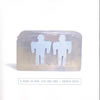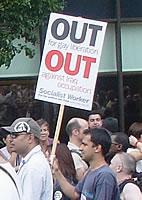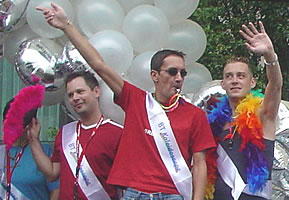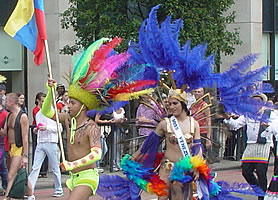|
|
Study, work or travel in the UK. British
culture and life.
|
|
|
|
|
|
|
|
|
|
|
|
|
|
|
|
|
|
|
|
|
|
|
|
|
|
|
|
|
|
|
|
|
|
|
|
|
Information for gay men coming to the UK
|
INTRODUCTION
This page gives some basic information to help gay men in the UK.
Back to top
VOCABULARY
Gay man - a man who is sexually attracted to other men
Straight man - a man who is sexually attracted to women
Homosexual - someone who is attracted to a person of the same sex (may
be a man or a woman)
Bisexual (or bi or AC/DC) - a man (or woman) who is sexually
attracted both to men and women
Transgender - a person who has changed his or her sex
LGB (or GLB) - lesbian, gay or bisexual
LGBT (or GLBT) - lesbian, gay, bisexual or transgendered
GWM - gay white male; GBM - gay black male
Homophobia - a strong dislike of gay or lesbian people
Transphobia - a strong dislike of transgender people
Homophobe - a person who dislikes gay or lesbian people (a type of bigot)
Gay friendly - openly welcoming to gay people
Coming out - telling friends or family for the first time that you are
gay
Back to top
INFORMATION & ADVICE
Information for gay visitors to the UK is available from the Visit Britain's website:
http://www.visitbritain.co.uk/things-to-see-and-do/things-to-do-for-people-like-me/gay-britain
UK publications for gay men include the following:
- Gay Times is a monthly magazine available from newsagents or by subscription:
http://www.gaytimes.co.uk
- AXM is a monthly magazine aimed at young gay adults: http://www.axm-mag.com
- Attitude is a monthly lifestyle magazine for gay men: http://www.attitude.co.uk
- The Pink Paper is a fortnightly newspaper for gay and lesbian people:
http://www.pinkpaper.com
- ScotsGay Magazine is a Scottish monthly magazine aimed at gay or lesbian
people: http://www.scotsgay.co.uk
- Boyz is a free weekly magazine for gay men in London: http://www.boyz.co.uk
- Fitlads is a free magazine for gay and bisexual men, published every
2 months: http://www.fitlads.net/mag
Some free publications can be downloaded from the website, or printed copies may
be available in gay/lesbian pubs or clubs.
There is an index of gay sites in the UK at http://www.gayindex.co.uk.
A gay search engine is: http://www.gaytoz.com.
A number of groups will offer free confidential advice to gay men, including:
- London Lesbian and Gay Switchboard is a 24 hour information line for
lesbians, gays and bisexuals: http://www.llgs.org.uk
- Kairos in Soho is a voluntary organisation promoting the welfare of gay
and lesbian people in London: http://www.kairosinsoho.org.uk.
Back to top
GAY COMMUNITIES
London (in south England), Brighton (on the south coast of England),
and Manchester (in north England) all have large gay communities.
A popular gay entertainment area in London is in Soho, in and around Old Compton
Street. Manchester's gay village is around Canal Street. Brighton's
gay quarter is in the area called Kemp Town on the eastern side of the
town, around St James's Street.
Blackpool, Bournemouth, Edinburgh, Glasgow and Newcastle also have significant
gay communities.
Information for gay visitors to London: http://www.visitlondon.com/people/gay
There is a directory of gay organisations (sorted by location) produced by the
Gay Times: http://www.gaytimes.co.uk/HotSpots/GayGuide.html
There are a large number of gay pubs, clubs and social groups. Gay bars often
use pink or rainbow signs so that they can be identified easily.
The Queer Youth Network is a discussion forum for LGBT youth in the UK:
http://www.queeryouth.org.uk.
Most universities have a LGBT society. You can find details on the website
of the university or of its students union.
There are gay youth groups in many locations (usually for people under 25).
Gaydar Guys is a gay personals web site: http://www.gaydarguys.com
 A centre for London's
A centre for London's
gay community |
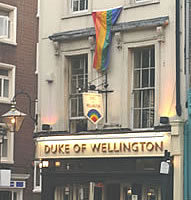 Gay pubs often use rainbow signs
Gay pubs often use rainbow signs |
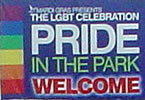 Pride In The Park
Pride In The Park
concert |
Back to top
ENTERTAINMENT
Every summer there are Pride events in major cities across the UK. These
are organised by members of the LGBT community and often include a parade, rally
and entertainment. For photos and website links, see: Ideas/Album/Pride.
There is an annual film festival in London showing gay and lesbian films
(see: http://www.llgff.org.uk).
Three popular British films which consider attitudes towards gay men are:
Maurice: http://www.imdb.com/title/tt0093512
Get Real: http://www.imdb.com/title/tt0162973
Billy Elliott (known in some countries as Little Dancer): http://www.imdb.com/title/tt0249462
To find out about gay sports groups in London or other parts of the UK,
try: http://www.outforsport.org
Gaydar Radio is a UK radio station for gay people: http://www.gaydarradio.com
The weekly magazine Time Out includes information about gay venues and events
in London: http://www.timeout.com/london/gay
Back to top
ATTITUDES TOWARDS GAY MEN
Many gay people in the UK still find it difficult to admit their sexuality, especially
while at school or university. Many men try to hide their sexuality from other
people, often leading to feelings of loneliness. The term coming out refers
to the stage when someone lets those around him know that he is gay.
Over recent years, young British people have generally become more tolerant of
homosexuality, and it is becoming more common for gay men to come out openly (including
some politicians and pop stars, for example). However, there are still some young
people who bully gay men or call them names (using terms such as "gay boy",
"queer", "fag" or "homo" in an unpleasant way).
It is not common to see gay men to show their sexuality openly in public (for
example by holding hands or kissing). Many older British people still find it
difficult to accept homosexuality, but do not usually show this openly. The official
teachings of most religions in the UK remain hostile to homosexuality.
Back to top
LAWS
- The age of consent is the youngest age at which sex is legal. Homosexuality
was legalised in the UK in 1967, and the homosexual age of consent has been reduced
since then from 21 to 18 and now to 16 (the same age as for sex between
men and women).
- You are not allowed to have sex in public places.
- Since 2003 it is unlawful to discriminate in the workplace against someone on
the grounds of his/her sexuality or perceived sexuality.
- Gay men (and women) have been allowed to serve in the military since February
2000 (before this time, each year up to 200 people were dismissed from the armed
services for being gay).
- Gay weddings are not legal in the UK. However, the Civil Partnership Act (passed
in 2004) creates a new legal relationship of civil partnership, which two
people of the same sex can form by signing a registration document. Civil partners
will have a range of legal rights and responsibilities, although not all of those
associated with marriage. The act came into force in December 2005.
Back to top
HEALTH ISSUES
HIV (Human Immuno-deficiency Virus) is a virus which weakens the immune
system (which defends the body against disease). It can spread by men's semen
or blood, or by women's vaginal fluids, breast milk or blood. It can cause AIDS
(Acquired Immuno-deficiency Syndrome), which may lead to death due to the
body's inability to fight illnesses.
The risk of contracting HIV can be reduced by using a condom during
sex (use proper lubrication and strong condoms), by having fewer sexual partners,
and by not sharing a needle or syringe with another person.
If you are worried that you may have HIV, confidential HIV tests can
be obtained from any sexual health clinic, sometimes called a STD
(sexually transmitted disease) clinic or GUM (genito-urinary medicine)
clinic or VD (veneral disease) clinic.
If you are HIV positive you should always tell your partner about this
before having any sexual contact with him.
The National AIDS Helpline is a free telephone service for people worried
about HIV or AIDS. The telephone number is 0800 567 123 (open 24 hours
a day, 7 days a week). The Terrence Higgins Trust is a UK charity providing
help and advice about HIV and AIDS at http://www.tht.org.uk
The Health Protection Agency provides information about HIV and AIDS in the UK:
http://www.hpa.org.uk/infections/topics_az/hiv_and_sti/hiv/general.htm
It is safer to avoid accepting drugs you may be offered, for example in clubs.
For a warning about the use of the drug crystal meth, see: http://www.lifeormeth.com.
Back to top
LINKS
Pride events: Ideas/Album/Pride
Brighton: Travel/Tours/England/Brighton
Manchester: Travel/Tours/England/Manchester
Personal health: Personal/Health
Home page: Home
Back to top
© UK Student Life 2002-2009
* Search this website (www.ukstudentlife.com) or the web:







